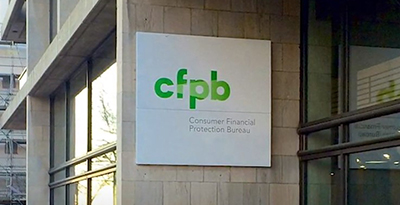
MBA Weighs in on CFPB Fees

The Mortgage Bankers Association weighed in with the Consumer Financial Protection Bureau regarding its request for comment on fees imposed by consumer financial product and service providers.
In a letter to the CFPB, MBA noted it shares the Bureau’s goal of promoting a mortgage market that is fair, transparent and competitive.
“MBA has the honor of serving a highly competitive industry where customers can and do shop from a wide array of providers,” MBA said. “This is not the ‘captured’ market the CFPB Request for Information seeks to convey. Moreover, the existing regulatory regime and prevailing business practices already ensure that fees in the mortgage industry are well disclosed and charged for actual services provided at the appropriate time in the lifecycle of a loan.”
Therefore, MBA said, there is no call for further action in this space, “which would only serve to add complexity and cost to lender operations and confuse consumers,” the letter said. “The examination of fees or competition in the mortgage industry must consider the body of extensive statutory and comprehensive regulatory requirements that have shaped the industry since the financial crisis.”
The MBA letter highlighted various CFPB rulemakings, including the Qualified Mortgage Rule, TILA-RESPA Integrated Disclosure Rule, TILA Servicing Rule and RESPA Servicing Rule and then listed several reasons “why further action by the Bureau is not needed or required.”
MBA also joined 10 other organizations in a second comment letter regarding fees. The American Bankers Association, American Financial Services Association, Bank Policy Institute, Community Development Bankers Association, Consumer Bankers Association, Credit Union National Association, Housing Policy Council, Independent Community Bankers of America, MBA, National Association of Federally-Insured Credit Unions and the U.S. Chamber of Commerce noted they all support CFPB’s mission of ensuring that all consumers have access to markets for consumer financial products and services and that markets for consumer financial products and services are fair, transparent and competitive.
Clear and conspicuous disclosure of the relevant terms helps foster robust competition in the marketplace, while allowing consumers to shop for and select the product or service that best suits their needs and avoid unnecessary fees, the joint letter said.
“In summary, the CFPB is charged with ensuring that ‘consumers are provided with timely and understandable information to make responsible decisions about financial transactions’,” MBA and the other organizations said. “If the CFPB now asserts that its past rulemaking efforts have failed to achieve that objective, it must square that assertion with the actual evidence, much of which is already available to the CFPB. If, based on such evidence, the CFPB determines that policy intervention may be warranted, it should proceed in a fair and impartial manner, grounded in its authority, and in coordination with other relevant agencies.”
